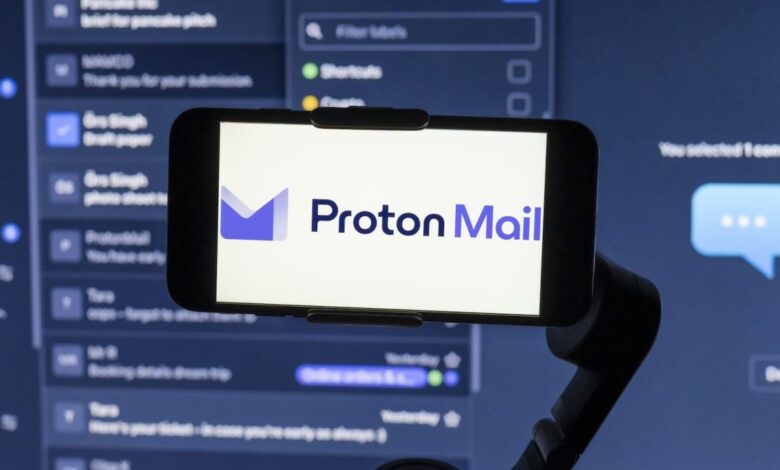Proton launches ‘privacy-first’ AI writing assistant for email that runs on-device

Privacy app maker Proton has launched a new AI-enabled writing assistant that helps users compose emails based on simple prompts, while also capable of redrafting and proofreading an existing email before it’s sent.
The launch sees Proton continue on a trajectory that has seen it replicate many of Google’s products and features in the productivity tooling space. Just last month, Google brought its own Gemini AI to Gmail to help users write and summarize emails, and now Proton is following suit with its own flavor.
As one might expect with Proton, a Swiss company known for a suite of privacy-centric apps including email, VPN, password manager, calendar, cloud storage, and documents, its new assistant is targeted at those concerned about leaking sensitive data to third-party AI providers.
Proton Scribe, as the new tool is called, is built on Mistral 7B, an open source language model from French AI startup Mistral, though Proton says it will likely tinker with this in pursuit of the most optimum model for this use-case. Additionally, Proton says that it’s making Scribe available under an open source GPL-3.0 license, making it easier for third-party security and privacy audits.
Going local
Proton Scribe can be deployed entirely at a local level, meaning user data doesn’t leave the device. Moreover, Proton promises that its AI assistant won’t learn from user data, which is particularly important in enterprise use-cases where privacy is paramount.
The problem that Proton is striving to address here is real — businesses have been slower to embrace the generative AI revolution due to data privacy concerns. And this early iteration of Proton Scribe could go some way toward appeasing such concerns.
“We realised that irrespective of whether or not Proton builds AI tools, users are going to use AI, often with significant privacy consequences,” Yen said. “Rather than have users copying their sensitive communications into third-party AI tools that often have appalling privacy practices, it would be better to instead build privacy-first AI tools directly into Proton Mail.”
For the less security-conscious, Scribe can also be configured to run via Proton’s servers, which should mean it will run faster, depending on users’ own hardware.
For those wanting to run Proton Scribe locally, they are prompted to download the model once to their machine, from which point the AI Model runs directly on-device without ever having to interact with external servers.
For those that run this on Proton’s servers, the company is quick to stress that no logs are kept and no data is shared with third-parties.
“Only the prompt entered by the user is transmitted to the server, and no data is ever retained after the email draft is created,” a company spokesperson told TechCrunch.

With Proton Scribe set up, users can type in a prompt, such as “request samples from a supplier,” and then hit the generate button.

Proton Scribe then spits out a template email based on the theme provided, and the user can edit and fine-tune what comes out.
With these privacy-centric provisions, there is at least one notable trade-off. Given that Proton Scribe doesn’t use any local data, its responses won’t be particularly personalized or contextual — they will likely be generic, a point that Proton conceded to TechCrunch.
However, it said this is why it has added additional features which it calls “quick actions” designed to make it easy for users to edit the drafts, such as changing the tone, proofreading, and making it more concise.
“Over time, we will look to improve Proton Scribe, adding context etc, but all in a privacy-preserving way,” Proton said in a statement.

While Proton Scribe is limited to email for now, the company said it may expand the tool to its other products in the future “depending on demand,” one obvious integration being its recently-launched collaborative document editing app.
Starting today, Proton’s writing assistant will be available for Proton Mail on the web and desktop, though the company confirmed that it will look to expand the tool to mobile devices in the future. And in terms of costs, Proton Scribe is mostly targeted at business users, with those on either the Mail Essentials, Mail Professional, or Proton Business Suite able to pay an extra $2.99 per month to access the writing assistant.
Additionally, those on one of Proton’s legacy and limited-availability plans such as Visionary or Lifetime will also be given access to Proton Scribe for free. The company said that it may expand the feature to other consumer plans in the future.
Source link



